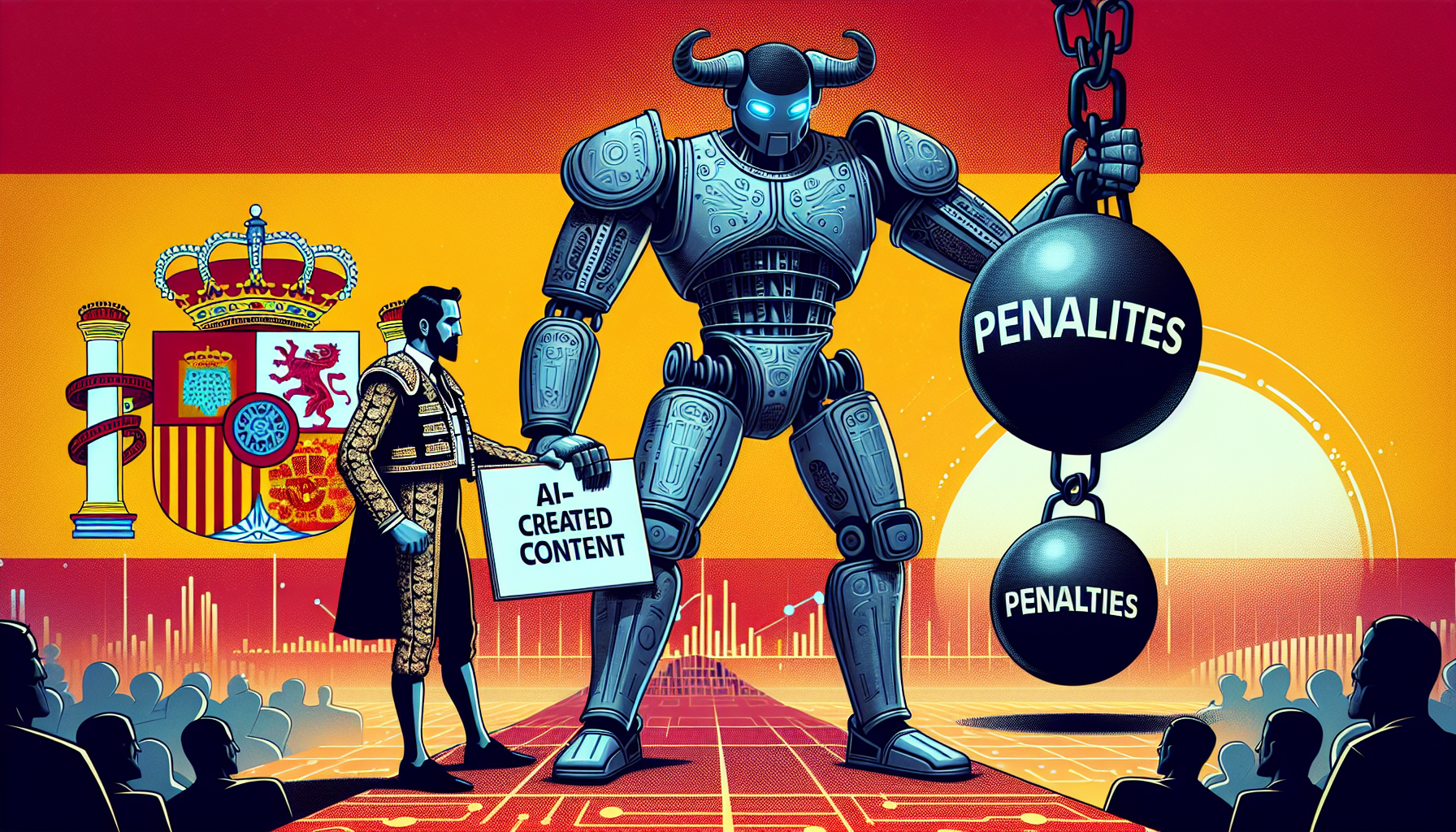Spain to Impose Substantial Penalties for Not Labeling AI-Created Content
We independently review everything we recommend. When you buy through our links, we may earn a commission which is paid directly to our Australia-based writers, editors, and support staff. Thank you for your support!

Spain Enacts Stringent AI Content Labeling Regulations with Substantial Penalties

Quick Overview
- Spain has put forward a bill requiring labeling of AI-generated content, imposing fines up to €35 million ($60.4 million AUD) for non-adherence.
- This legislation is in alignment with the European Union’s AI Act, establishing transparency mandates for high-risk AI technologies.
- The goal of the bill is to mitigate misinformation, especially deepfake material that may jeopardize democracy.
- Additionally, it bans subliminal AI methods that could exploit at-risk individuals.
- Real-time biometric monitoring in public areas remains allowed for national defense reasons.
- The newly formed AI oversight body, AESIA, will handle enforcement duties.
Spain’s AI Regulation: A Move Towards Transparency
Spain is adopting a resolute approach to artificial intelligence (AI) regulation by proposing a bill that necessitates explicit labeling of AI-generated content. This initiative arises from growing alarm regarding deepfake materials that disseminate misinformation and sway public perception.
In Sync with the EU’s AI Act
The new legislation corresponds with the European Union’s AI Act, which imposes strict transparency standards for high-risk AI systems. Contrarily, in the United States, AI regulation is predominantly voluntary and varies by state, whereas the EU is striving for a cohesive legal structure.
Necessity for Labeling AI-Generated Content
AI-generated content, such as deepfake videos and images, can be profoundly misleading, making it challenging to differentiate between authentic and altered media. Spain’s recent regulations aim to safeguard citizens from deceptive content and prevent the misuse of AI to sway public sentiment.
Severe Penalties for Non-Compliance
Non-compliance with the AI labeling mandates will be deemed a “serious offence,” incurring fines as high as €35 million ($60.4 million AUD) or 7% of a corporation’s worldwide revenue. This considerable financial penalty is intended to motivate businesses to take compliance seriously.
Additional AI-Related Prohibitions in the Bill
In addition to the labeling of AI-generated content, the bill also bans certain AI practices that could jeopardize individuals, including:
- Subliminal manipulation: AI-generated audio and visuals that subtly affect vulnerable individuals, such as fostering gambling addiction.
- AI-enabled biometric classification: Preventing organizations from utilizing AI to evaluate individuals’ behaviors or personal characteristics for service access.
National Security Exceptions
Although the bill imposes stringent restrictions, it permits authorities to employ real-time biometric surveillance in public areas for national security purposes. This exception enables law enforcement to continue using AI-enhanced surveillance while adhering to the new regulations.
Who Will Enforce the Fresh AI Regulations?
Spain has established a special AI supervisory agency, AESIA, to ensure compliance. However, particular AI applications related to privacy, crime, elections, credit assessments, insurance, and financial markets will be overseen by their specific regulatory bodies.
Conclusion
Spain’s AI bill introduces some of the most stringent regulations regarding AI-generated content labeling, aligning with the EU’s AI Act. The law is designed to counter the increase of deepfake misinformation while also restricting detrimental AI applications, such as subliminal manipulation and biometric classification. With significant penalties in place, companies will need to swiftly adapt to these new transparency norms.
Common Questions
Q: Why is Spain implementing AI labeling laws?
A:
Spain is implementing AI labeling laws to fight misinformation, particularly from deepfake technology. The aim is to promote transparency and prevent AI from being misused to influence the public.
Q: What are the repercussions for not labeling AI-generated content?
A:
Firms that do not label AI-generated content could face fines reaching up to €35 million ($60.4 million AUD) or 7% of their global annual income.
Q: How does this legislation stack up against AI regulation in other nations?
A:
Spain’s law aligns with the EU’s AI Act, which makes it more stringent compared to AI regulations in the United States, where compliance is largely optional.
Q: Will there be an outright ban on AI-generated content?
A:
No, AI-generated content will not be banned but must be distinctly labeled to differentiate it from genuine content.
Q: Who will oversee the enforcement of the new AI regulations in Spain?
A:
The AI supervisory agency AESIA will manage enforcement, with particular regulatory authorities addressing AI applications in privacy, finance, and crime prevention.
Q: Are there any exemptions to these AI regulations?
A:
Yes, authorities may still utilize real-time biometric surveillance in public spaces for national security purposes.
